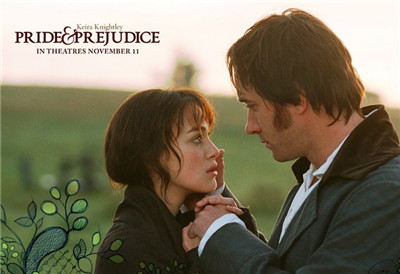The housekeeper came; a respectable-looking, elderly woman, much less fine, and more civil, than she had any notion of finding her. They followed her into the dining-parlour. It was a large, well-proportioned room, handsomely fitted up. Elizabeth, after slightly surveying it, went to a window to enjoy its prospect. The hill, crowned with wood, from which they had descended, receiving increased abruptness from the distance, was a beautiful object. Every disposition of the ground was good; and she looked on the whole scene -- the river, the trees scattered on its banks, and the winding of the valley, as far as she could trace it -- with delight. As they passed into other rooms, these objects were taking different positions; but from every window there were beauties to be seen. The rooms were lofty and handsome, and their furniture suitable to the fortune of their proprietor; but Elizabeth saw, with admiration of his taste, that it was neither gaudy nor uselessly fine; with less of splendor, and more real elegance, than the furniture of Rosings.

"And of this place," thought she, "I might have been mistress! With these rooms I might now have been familiarly acquainted! Instead of viewing them as a stranger, I might have rejoiced in them as my own, and welcomed to them as visitors my uncle and aunt. -- But no," -- recollecting herself, -- "that could never be: my uncle and aunt would have been lost to me: I should not have been allowed to invite them." This was a lucky recollection -- it saved her from something like regret.












